Pilgrimage of a Lifetime
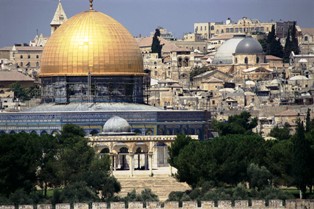 Every visitor to Israel has at least one special moment from his or her trip that stands out. Whether it’s walking on the same paths on which Jesus walked, sitting in a restaurant talking with local Israelis or planting a tree to help the desert rebloom—a visit to Israel is memorable.
Every visitor to Israel has at least one special moment from his or her trip that stands out. Whether it’s walking on the same paths on which Jesus walked, sitting in a restaurant talking with local Israelis or planting a tree to help the desert rebloom—a visit to Israel is memorable.
I asked believers from around the world to share their unique memories. From Wales to China to the United States, they responded with stories they’ve treasured in their hearts—in some cases for decades. Here are their special moments.


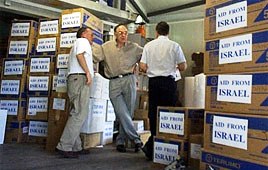


 No other book of the Bible has more to say about the captivity of God’s people and the promise of freedom and restoration than the book of Isaiah. Isaiah ministered as a prophet to the people of God in and around Jerusalem during the period when the nation of Israel was a divided kingdom.
No other book of the Bible has more to say about the captivity of God’s people and the promise of freedom and restoration than the book of Isaiah. Isaiah ministered as a prophet to the people of God in and around Jerusalem during the period when the nation of Israel was a divided kingdom. 
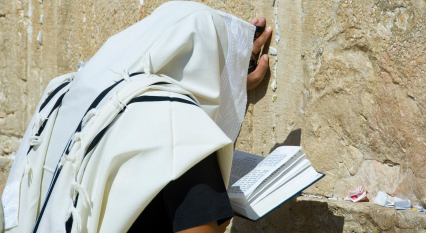 Zechariah 12:1-13:9 is a powerful prophecy of when the veil of the Jewish people will be dropped and Israel will be saved in a day. Zechariah prophesies, “And I will pour upon the house of David, and upon the inhabitants of Jerusalem, the spirit of grace and of supplications: and they shall look upon me whom they have pierced, and they shall mourn for him, as one mourneth for his only son, and shall be in bitterness for him, as one that is in bitterness for his first born” (Zech. 12:10, KJV).
Zechariah 12:1-13:9 is a powerful prophecy of when the veil of the Jewish people will be dropped and Israel will be saved in a day. Zechariah prophesies, “And I will pour upon the house of David, and upon the inhabitants of Jerusalem, the spirit of grace and of supplications: and they shall look upon me whom they have pierced, and they shall mourn for him, as one mourneth for his only son, and shall be in bitterness for him, as one that is in bitterness for his first born” (Zech. 12:10, KJV).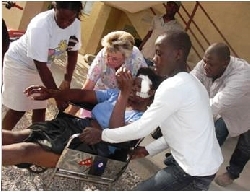


 We may never know with certainty which of the four sites associated with “Emmaus” is the true location. Which one is the actual location where Jesus appeared to His disciples following His resurrection?
We may never know with certainty which of the four sites associated with “Emmaus” is the true location. Which one is the actual location where Jesus appeared to His disciples following His resurrection? 

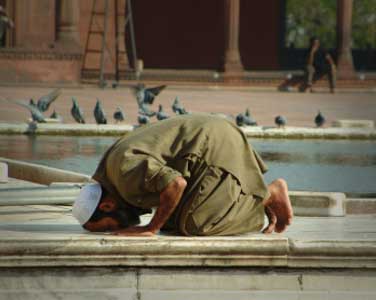 Although it takes a back seat to rumors of war, a tsunami of faith is quietly overtaking the Muslim world. Islamic adherents are laying aside their allegiance to Muhammad to follow Jesus Christ, despite the social ostracism, persecution and possible martyrdom that converts to Christianity face. Propelled by dreams, visions and miracles, this wave of revival is bringing vast numbers of Muslims—some say millions—into God’s kingdom.
Although it takes a back seat to rumors of war, a tsunami of faith is quietly overtaking the Muslim world. Islamic adherents are laying aside their allegiance to Muhammad to follow Jesus Christ, despite the social ostracism, persecution and possible martyrdom that converts to Christianity face. Propelled by dreams, visions and miracles, this wave of revival is bringing vast numbers of Muslims—some say millions—into God’s kingdom.
 When Joshua led the children of Israel into the Promised Land, news of their conquests spread quickly.
When Joshua led the children of Israel into the Promised Land, news of their conquests spread quickly.
 In Genesis 12:3, God makes a promise to Abraham: ‘”I will bless those who bless you, and whoever curses you I will curse; and all peoples on earth will be blessed through you.'”
In Genesis 12:3, God makes a promise to Abraham: ‘”I will bless those who bless you, and whoever curses you I will curse; and all peoples on earth will be blessed through you.'” 

 In an overwhelming show of support, the House of Representatives passed the Iran Refined Petroleum Sanctions Act of 2009 on Tuesday.
In an overwhelming show of support, the House of Representatives passed the Iran Refined Petroleum Sanctions Act of 2009 on Tuesday. 
 Our group enjoyed another jam-packed day in Israel as we visited Bet Yigal Alon Museum, Tel Dan, Hazor, Mount of Beatitudes, Capernaum, Peter’s Primacy and the Ein Ayub, the spring of Job.
Our group enjoyed another jam-packed day in Israel as we visited Bet Yigal Alon Museum, Tel Dan, Hazor, Mount of Beatitudes, Capernaum, Peter’s Primacy and the Ein Ayub, the spring of Job. 
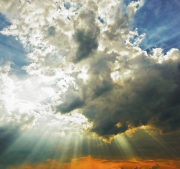 One of the characteristics of prophetic revelation is that it is sometimes allegorical or symbolic, and it is fully understood only after future events have taken place. From the Old Testament perspective, it was not altogether clear what the Messiah would look like.
One of the characteristics of prophetic revelation is that it is sometimes allegorical or symbolic, and it is fully understood only after future events have taken place. From the Old Testament perspective, it was not altogether clear what the Messiah would look like. 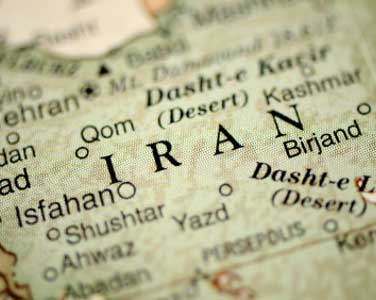
 Christian Leaders for a Nuclear-Free Iran (CLNFI) sent a letter to Congress today urging lawmakers to place sanctions on Iran to prevent the Middle East country from obtaining nuclear weapons.
Christian Leaders for a Nuclear-Free Iran (CLNFI) sent a letter to Congress today urging lawmakers to place sanctions on Iran to prevent the Middle East country from obtaining nuclear weapons. 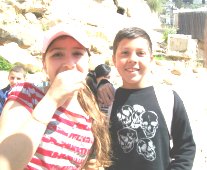
 What a blessing it is to be grandparents. Psalm 128: 1-6 promises the children of Israel that they will see their children’s children. “Thy wife shall be as a fruitful vine by the sides of thine house: thy children like olive plants round about thy table” (v. 3, KJV). “Yea, thou shalt see thy children’s children, and peace upon Israel” (v. 6, KJV).
What a blessing it is to be grandparents. Psalm 128: 1-6 promises the children of Israel that they will see their children’s children. “Thy wife shall be as a fruitful vine by the sides of thine house: thy children like olive plants round about thy table” (v. 3, KJV). “Yea, thou shalt see thy children’s children, and peace upon Israel” (v. 6, KJV).
 You’ve seen her—the veiled, dark-robed woman in the checkout line at Wal-Mart or Target. She’s Muslim, you think to yourself, probably from the Middle East or Asia.
You’ve seen her—the veiled, dark-robed woman in the checkout line at Wal-Mart or Target. She’s Muslim, you think to yourself, probably from the Middle East or Asia.